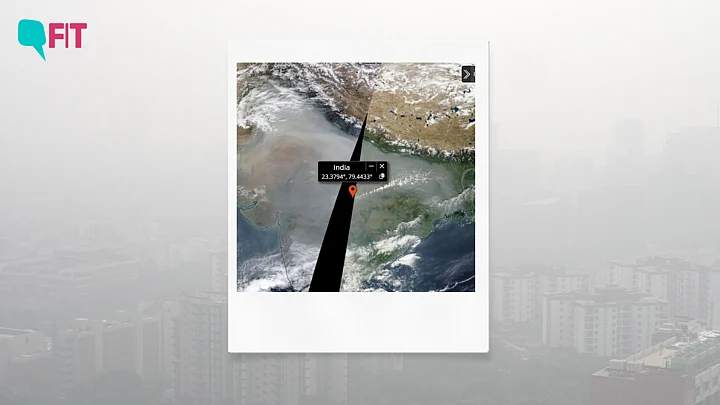A thick cloud of toxic air and smog has formed over northern Indian states, particularly over Delhi, Punjab, Haryana, and Uttar Pradesh, NASA’s satellite images have revealed.
The images by NASA Worldview show a grave picture of the region’s deteriorating air quality. The news is especially concerning for Delhi that has had multiple “severe” AQI levels throughout November already.
Data from the US-based space organisation recently also highlighted a 740 percent increase in stubble fires through northwestern India, marking that as one of the sources of the poor air quality levels.
But that’s not the only reason. While emissions from vehicles is one of the causes in Delhi, along with construction activities, the satellite images reveal that the cause of concern goes beyond Delhi alone – highlighting toxic air conditions in neighbouring cities and states too.
From Punjab To Bay Of Bengal: What’s Behind The Pollution?
The satellite images show that the thick layer of smog extends from Punjab to the Bay of Bengal. The major sources of pollution in the region include:
Stubble burning and farm fires
Vehicular emission
Burning of waste
Construction debris
Road dust
Industrial waste
In a 2016 IIT-Kanpur led study, commissioned by the Delhi government, the major sources of pollution were identified as:
Biomass burning (26 percent)
Vehicles (25 percent)
Secondary pollutants (30 percent) –formed when pollutants and gases mix
MSW burning (9 percent)
Soil and road dust
Another 2018 study conducted by The Energy and Resources Institute (TERI) identified these as the main pollutants:
Industries (30 percent)
Vehicles (28 percent)
What Are Governments Doing?
Delhi:
To curb the air pollution levels in Delhi, the Supreme Court has directed Punjab to put a stop on stubble burning.
The Delhi government also banned the entry of app-based taxis from other states.
Schools have also been asked to prepone their winter vacations to November and move to online classes.
Delhi might also reinstate the odd-even vehicle practice after the apex court has reviewed its effectiveness.
There might also be artificial rain showers in the state on 20-21 November.
Delhi has also implemented Stage 4 of the Graded Response Action Plan.
Mumbai:
The Bombay High Court on 6 November said that firecrackers on Diwali (12 November) can only be burst between 7-10 pm.
Vehicles carrying construction debris are banned till 10 November.
The Brihanmumbai Municipal Corporation has mandated using sheet enclosures and sprinkler systems on all construction sites.
(At The Quint, we question everything. Play an active role in shaping our journalism by becoming a member today.)
